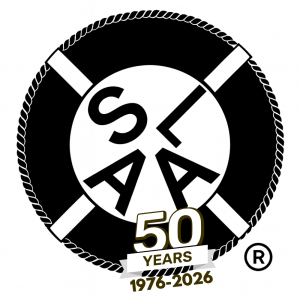How does harassment at a meeting level relate to Tradition 4 (Each group should be autonomous except in matters affecting SLAA as a whole).
While it is very possible that the disruption at the meeting level could cause members to leave the meeting and possibly the program, that would not appear to affect SLAA as a whole. So, Tradition 4 would indicate that it is a meeting level issue, and not something that the Intergroup should address.
For the meeting, I think that review of Tradition 1 would be most applicable. The common welfare of the meeting members should come first, and harassment will not help to achieve that goal. The meeting can then look to Tradition 4 to make a decision on how to handle the individual creating the problem. There is some helpful draft literature titled “Suggested Guidelines Regarding Safety in the Program” that could be used to create a reading for the meeting (I have attached a copy).
Having been in a meeting that experienced this problem, I can relate my own experience. We talked with the individual one on one first, and gently described the problem. When the behavior did not change, the one on one discussion was repeated a second time a few weeks later. When the behavior still did not change, the entire group asked the individual to leave our meeting and find another SLAA meeting.
There aren’t any official documents that outline an Intergroup’s role in how much they can “oversee” a group. I have seen Intergroups give insight or an opinion on matters, but my understanding is that the Intergroup is not the authority just like F.W.S. isn’t.
On the F.W.S. website, there are many past questions from the CSTCC, some of which may apply to what your Group is experiencing.
Read them Here
There have been a few Items for Discussion at the ABM on topics similar to the ones brought up here. The problem is not a simple one, first and foremost, the meetings should be a safe place for all members of the fellowship. (Tradition 1) If someone’s behavior is making the meeting feel unsafe the person who feels unsafe should feel free to talk with the meeting officers, or the meeting officers should notice the unsafe behavior and act to put a stop to it. Often simply taking the offender aside and explaining that the behavior is not appropriate is enough.
Some read Tradition 3 “The only requirement for S.L.A.A. membership is a desire to stop living out a pattern of sex and love addiction” as not being able to ask someone seeking recovery from a meeting. In my opinion not respecting another’s boundaries (after being made aware that their behavior is inappropriate) shows they lack the desire. In those cases the meeting may take a group conscious and decide to ban the offending individual until such time that they are willing to respect the boundaries of the others in the meeting.
If the group does not make a group conscience to ban the individual the person who feels unsafe should do whatever they see as appropriate to feel safe. Letting other members know they feel unsafe, and asking them to accompany them into and out of the meeting. Staying away from the meeting, or starting a new meeting are a few things I’ve seen done.
The role of intergroup is limited, since each meeting is autonomous. If there is harassment at a meeting that the meeting does not address, you could go to intergroup, as you came to FWS and this committee to remind the meeting officers that the meeting should be a safe place.
The person may be attending several meetings and harassing people in several meetings, if that is the case it could bring Tradition 4 into place as the actions are affecting other groups.


